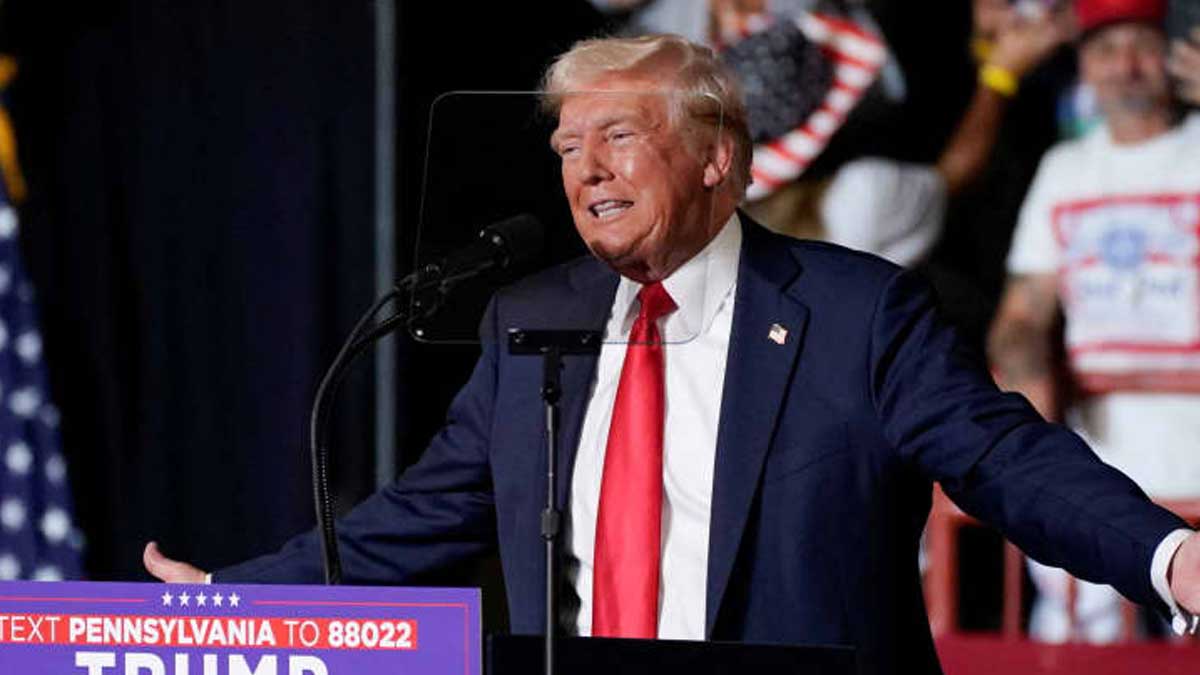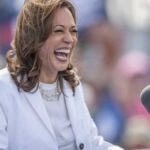- Home
- Billionaires
- Investing Newsletters
- 193CC 1000
- Article Layout 2
- Article Layout 3
- Article Layout 4
- Article Layout 5
- Article Layout 6
- Article Layout 7
- Article Layout 8
- Article Layout 9
- Article Layout 10
- Article Layout 11
- Article Layout 12
- Article Layout 13
- Article Layout 14
- Article Sidebar
- Post Format
- pages
- Archive Layouts
- Post Gallery
- Post Video Background
- Post Review
- Sponsored Post
- Leadership
- Business
- Money
- Small Business
- Innovation
- Shop
Recent Posts
Trump’s January 6 Trial Delayed Until After Election Day

Former President Donald Trump’s federal case for attempting to overturn the 2020 election is advancing again after the Supreme Court granted him partial immunity. However, a trial is unlikely to take place before Election Day, as the judge overseeing the case has granted Special Counsel Jack Smith’s request for more time to propose how the proceedings should unfold. This process could take months as the legal teams work to interpret the Supreme Court’s decision.
The federal election case returned to U.S. District Judge Tanya Chutkan last week after being paused for months while Trump’s immunity claims were under review. The Supreme Court ruled in July that Trump cannot be charged for “official acts” he performed while president, but the decision largely left it to Judge Chutkan to determine how to apply that standard. The ruling specifically stated that Trump is immune from charges related to pressuring Justice Department officials to challenge the vote count.
Judge Chutkan instructed both Special Counsel Smith and Trump’s legal team to submit a status report by Friday. However, Smith requested an extension until August 30, which the judge granted. This extension further prolongs what is already expected to be a lengthy process to determine which charges against Trump can proceed. Judge Chutkan will first need to rule on the charges, and Trump will likely appeal any unfavorable decisions, potentially taking the case to higher courts, including the Supreme Court.
The process of narrowing Trump’s indictment remains uncertain. Smith might file an updated indictment excluding some charges, and some legal experts have suggested that Judge Chutkan could hold a “mini-trial” to decide what evidence can be presented. Such a proceeding would draw significant public attention to the case and require Trump to defend himself before the full trial.
Regardless of how the case develops, it is clear that the trial will not occur before Election Day. If Trump wins the election, he would likely end the case by appointing DOJ officials who would dismiss the charges against him.
In her order granting Smith’s request for an extension, Judge Chutkan also scheduled a hearing for September 6, postponing it from the originally planned date of August 16. Only after this hearing will there be a clearer understanding of how long the case might take to resolve. This delay also means that the election case will intensify as Election Day approaches, coinciding with Trump’s criminal sentencing in Manhattan on September 16—a sentencing that has also been delayed following the Supreme Court’s immunity decision. Trump has requested that the verdict against him in that case be overturned.
While Smith’s request for an extension prolongs the case, some legal experts support his decision, arguing that it is prudent for the prosecutor to be thorough. Given that the case is likely to be delayed by appeals, Smith must move forward carefully to ensure accuracy. Former U.S. Attorney Joyce Vance emphasized that while the Special Counsel’s job is to advance the case as quickly as possible, it is crucial to do so with due care. Vance argued that the additional time Smith requested could lead to a more organized and streamlined process.
The specific charges that will proceed against Trump in the federal election case remain unclear. The Supreme Court’s ruling was largely vague on what constitutes an “official act” and gave Judge Chutkan significant discretion in interpreting the charges. Legal experts have criticized this ambiguity, suggesting that it makes it highly likely that the case will return to the Supreme Court, giving Trump more opportunities to challenge Chutkan’s decisions. Some legal scholars believe that significant parts of the indictment should survive, including Trump and his allies’ efforts to submit false slates of electors to Congress and Trump’s use of private attorneys to spread false election fraud claims, as these actions may not be considered “official acts.”
The Department of Justice (DOJ) has a longstanding rule that prohibits the agency from taking major investigative steps within 60 days of an election that could influence the vote count. However, this rule should not apply in this case, as it is limited to actions such as bringing an indictment or executing a search warrant. Since the election case is now in the hands of the judge rather than the DOJ, the agency’s rules should not impact the timing of the proceedings.
Trump was indicted in August 2023 in federal court for his efforts to overturn the 2020 election. Prosecutors have charged him with four felonies, including conspiracy to defraud, obstruction, and conspiracy against rights. Trump has pleaded not guilty to all charges, labeling them as a “witch hunt” aimed at undermining his political campaign. The charges stem from four schemes by Trump and his allies to subvert the election results: pressuring state officials to alter the results, the “fake elector” plot, using the DOJ to challenge the vote count, and attempting to block Congress from certifying the election results on January 6. Trump has challenged the indictment by claiming immunity from criminal prosecution, an argument he has used in many of his criminal and civil cases. While lower courts have rejected these claims, with both Judge Chutkan and an appeals court panel ruling against Trump, the Supreme Court was more receptive. The high court’s decision to grant Trump and other former presidents immunity for official acts has been widely criticized by those on the left. In response, Democrats have introduced legislation and a proposed constitutional amendment to counteract the ruling, though these measures are unlikely to pass.
Recent Posts
Categories
- 193 Countries Consortium Partner1
- 193cc Digital Assets2
- 5G1
- Aerospace & Defense48
- AI37
- Arts3
- Banking & Insurance11
- Big Data3
- Billionaires1,261
- Boats & Planes1
- Business332
- Careers13
- Cars & Bikes79
- CEO Network1
- CFO Network17
- CHRO Network1
- CIO Network1
- Cloud10
- CMO Network18
- Commercial Real Estate7
- Consultant1
- Consumer Tech194
- CxO1
- Cybersecurity73
- Dining1
- Diversity, Equity & Inclusion4
- Education7
- Energy8
- Enterprise Tech29
- Events11
- Fintech1
- Food & Drink2
- Franchises1
- Freelance1
- Future Of Work2
- Games149
- GIG1
- Healthcare79
- Hollywood & Entertainment203
- Houses1
- India’s 1000 Richest1
- Innovation46
- Investing2
- Investing Newsletters4
- Leadership65
- Lifestyle11
- Manufacturing1
- Markets20
- Media327
- Mobile phone1
- Money13
- Personal Finance2
- Policy569
- Real Estate1
- Research6
- Retail1
- Retirement1
- Small Business1
- SportsMoney42
- Style & Beauty1
- Success Income1
- Taxes2
- Travel10
- Uncategorized13
- Vices1
- Watches & Jewelry2
- world's billionaires1,230
- Worlds Richest Self-Made Women2
Related Articles
South Korea Plane Crash: A Tragic Loss and Global Mourning
The tragic plane crash at South Korea’s Muan International Airport on Sunday...
By 193cc Agency CouncilDecember 30, 2024H-1B Visa Debate Splits Trump Allies and Silicon Valley
The debate over H-1B visas has once again become a contentious issue,...
By 193cc Agency CouncilDecember 28, 2024Trump Moves $4B Stake in Truth Social Parent, Stock Drops 6%
Donald Trump recently transferred his 57% stake in Trump Media & Technology...
By 193cc Agency CouncilDecember 20, 2024House Rejects Trump-Backed Funding Bill, Shutdown Looms
The U.S. House of Representatives rejected a new government funding bill on...
By 193cc Agency CouncilDecember 20, 2024















Leave a comment